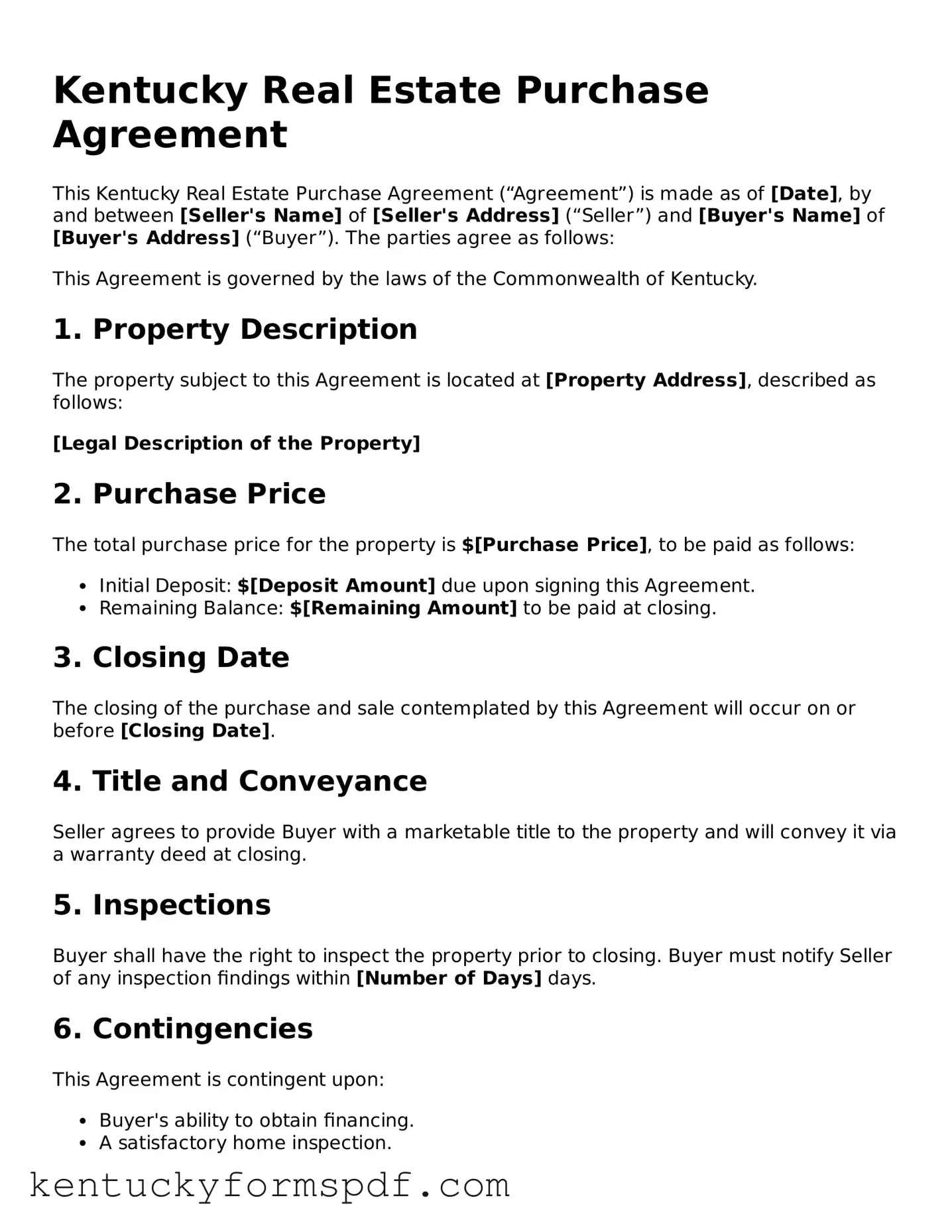What is a Kentucky Real Estate Purchase Agreement?
The Kentucky Real Estate Purchase Agreement is a legal document that outlines the terms and conditions of a real estate transaction. It serves as a binding contract between the buyer and the seller, detailing the property being sold, the purchase price, and any contingencies or special conditions that apply to the sale.
Who should use this agreement?
This agreement is intended for use by individuals or entities involved in buying or selling real estate in Kentucky. Both residential and commercial transactions can utilize this form, ensuring that all parties understand their rights and obligations.
What key elements are included in the agreement?
The agreement typically includes the property description, purchase price, earnest money deposit, closing date, contingencies (like financing or inspections), and any special provisions. Each section is designed to protect the interests of both the buyer and seller.
Is this form legally binding?
Yes, once both parties sign the Kentucky Real Estate Purchase Agreement, it becomes legally binding. This means that both the buyer and seller are obligated to adhere to the terms outlined in the document unless they mutually agree to modify or cancel the agreement.
Can I modify the agreement?
Yes, the agreement can be modified to suit the specific needs of the transaction. However, any changes must be agreed upon and initialed by both parties to ensure clarity and mutual consent.
What happens if one party breaches the agreement?
If one party fails to fulfill their obligations under the agreement, the other party may have legal recourse. This could involve seeking damages or enforcing the terms of the contract through legal action. It’s advisable to consult with a legal professional in such situations.
Do I need a real estate agent to use this agreement?
No, you do not need a real estate agent to use the Kentucky Real Estate Purchase Agreement. However, having an agent can provide valuable guidance throughout the process, ensuring that all terms are clearly understood and properly executed.
What is earnest money, and how does it work?
Earnest money is a deposit made by the buyer to demonstrate their serious intent to purchase the property. This amount is typically held in escrow and applied toward the purchase price at closing. If the sale does not go through due to contingencies, the buyer may be entitled to a refund of the earnest money.
Are there any contingencies I should consider including?
Common contingencies include financing, home inspections, and appraisal. These clauses protect the buyer by allowing them to back out of the agreement if certain conditions are not met. Discussing potential contingencies with a real estate professional can help ensure all necessary protections are in place.
How can I ensure my agreement complies with Kentucky law?
To ensure compliance with Kentucky law, it’s best to use a standardized form and consult with a real estate attorney or professional. They can help verify that all necessary legal requirements are met and that the agreement is tailored to your specific transaction.

